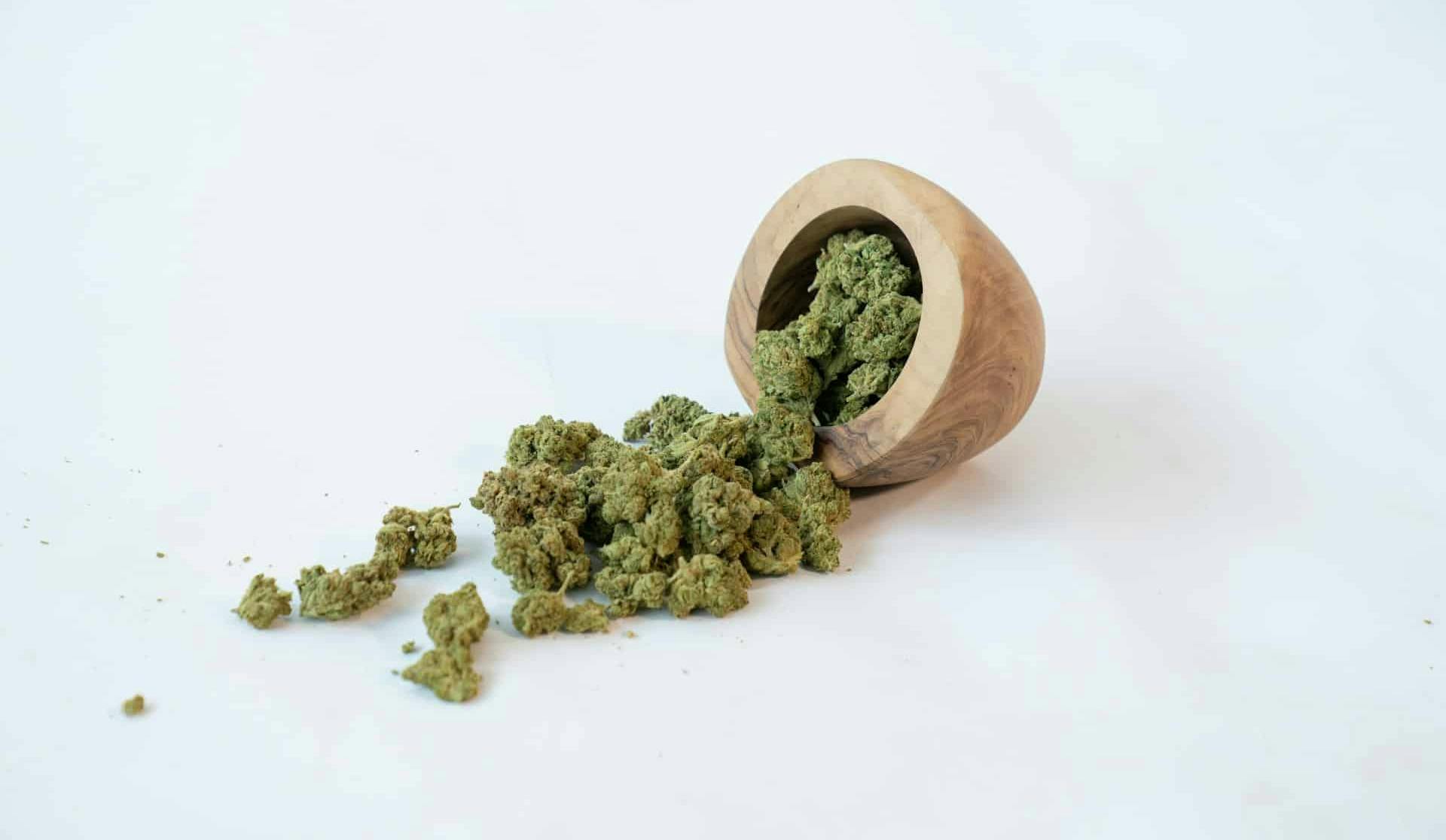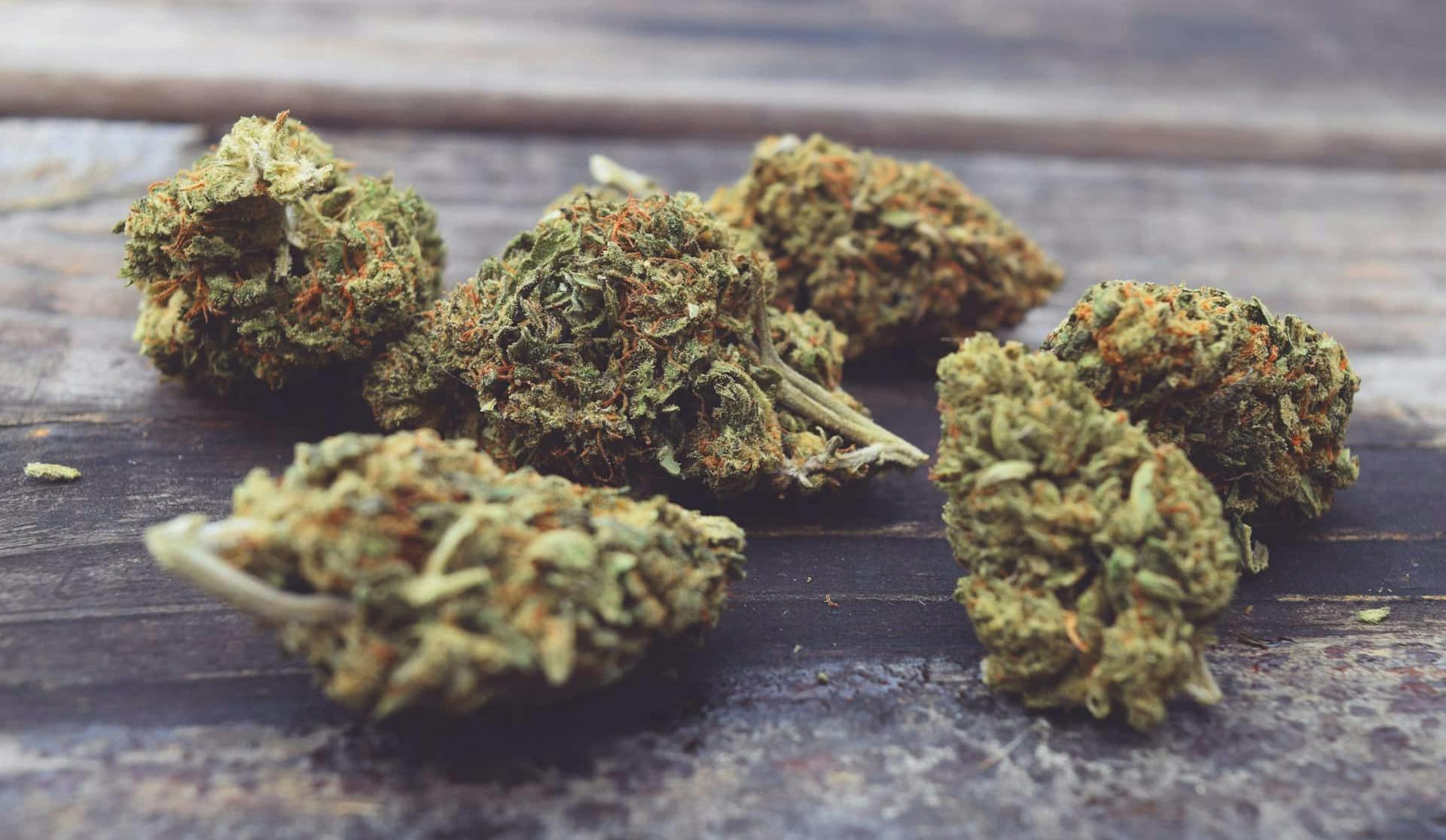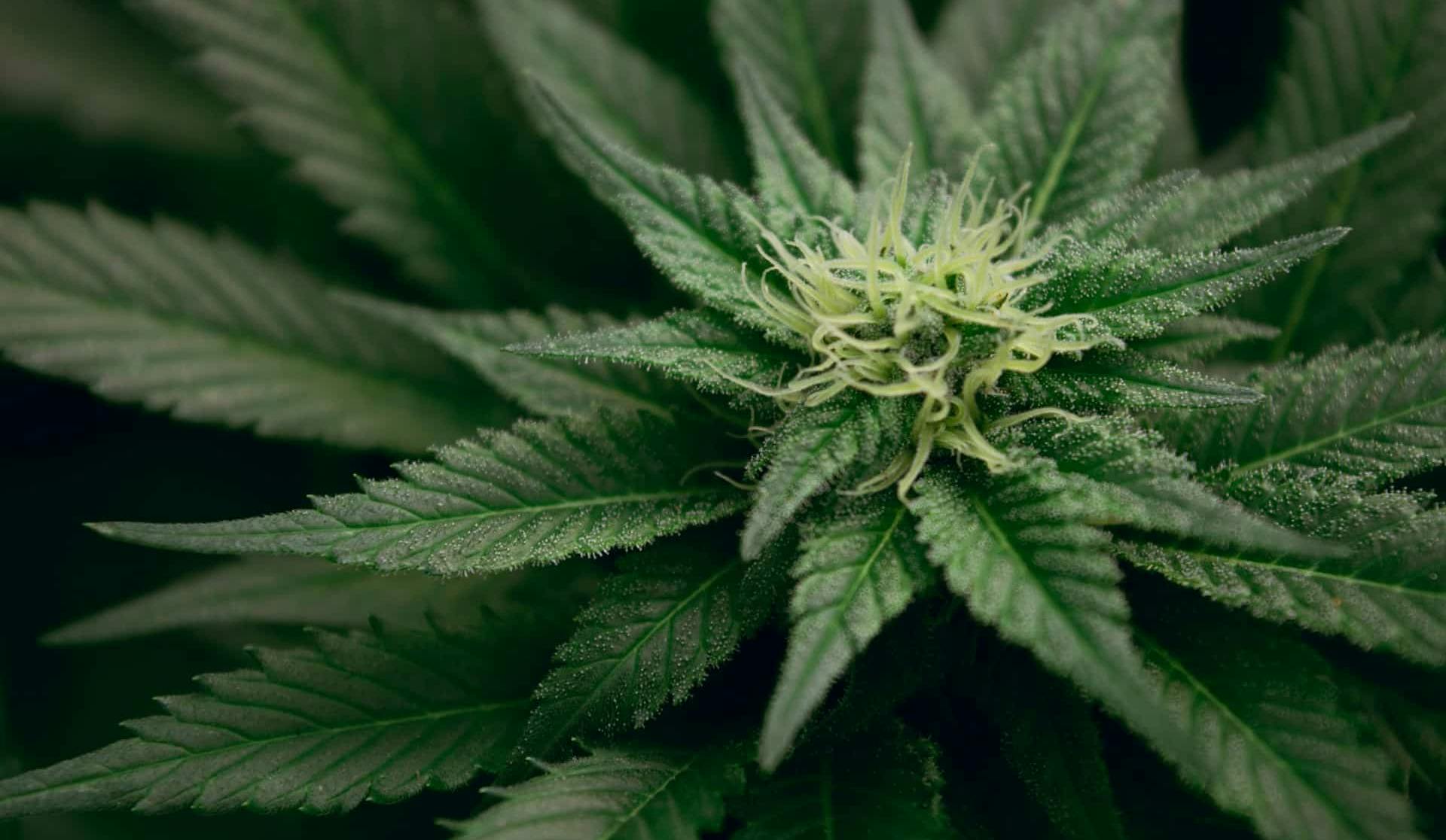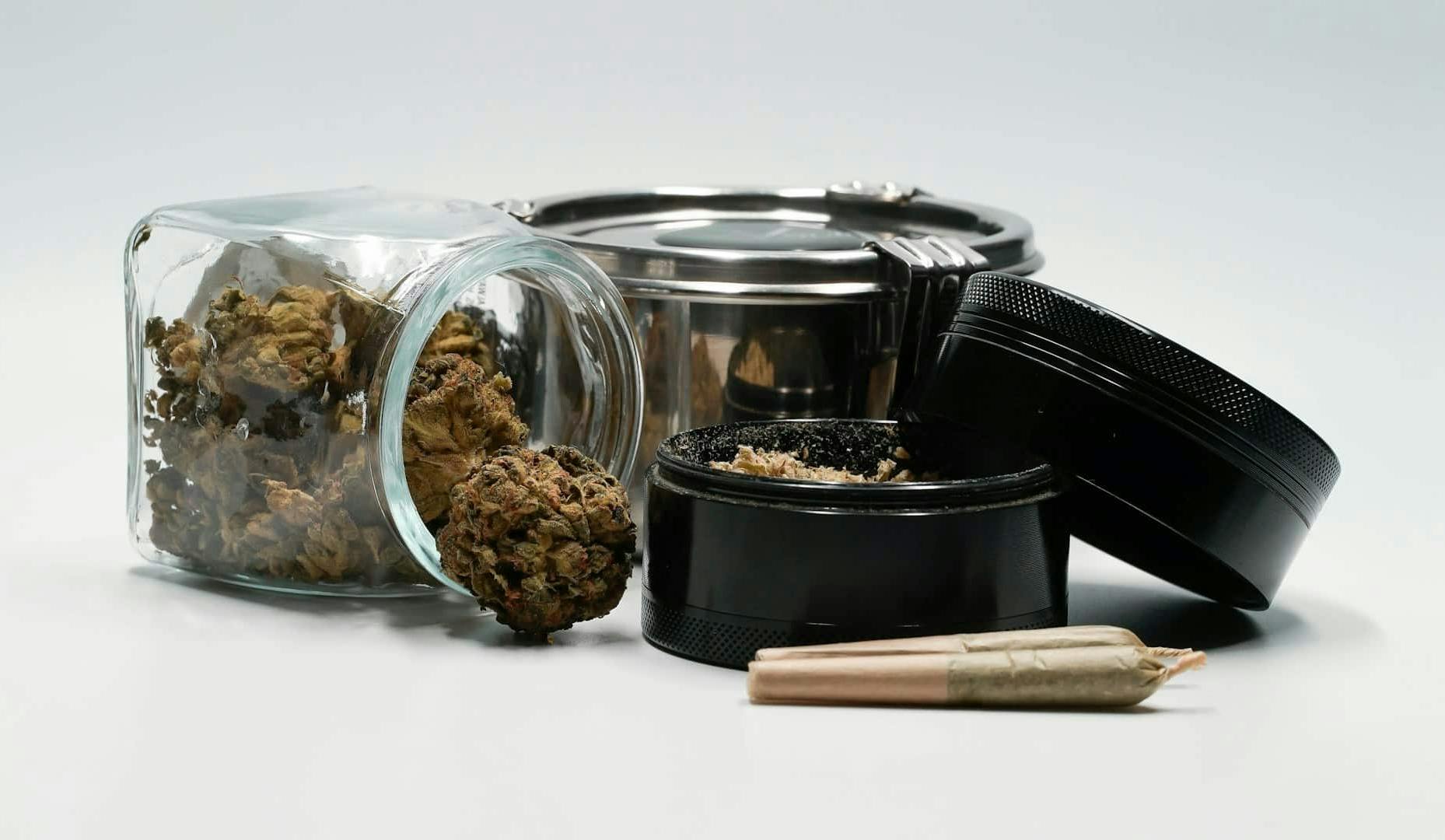Navigate the complex world of cannabis laboratory testing with expert guidance from Cambridge's premier heritage-focused dispensary, where transparency and quality assurance honor both scientific rigor and cultural authenticity.
Cannabis laboratory testing represents the intersection of scientific rigor and consumer protection, transforming an industry historically operating without standardized quality controls into a regulated marketplace where transparency and safety verification protect consumers while enabling informed purchasing decisions. Understanding laboratory testing protocols, interpreting complex analytical results, and recognizing quality indicators empowers cannabis consumers to make evidence-based choices while supporting cultivators and processors committed to excellence and transparency.
GreenSoul Dispensary has championed transparent quality assurance since our founding by Taba Moses, combining our commitment to cannabis heritage with unwavering dedication to scientific accuracy and consumer protection. As a cultural catalyst operating in Cambridge's academically-oriented community, we recognize that authentic cannabis culture must embrace scientific understanding while preserving traditional wisdom, creating comprehensive quality standards that honor both heritage values and modern safety requirements.
This definitive guide explores every aspect of cannabis testing and quality assurance, from mandatory safety screenings and potency verification to advanced terpene profiling and contamination detection. Whether you're a newcomer seeking to understand basic quality indicators or an experienced consumer wanting to interpret detailed laboratory reports, this expert analysis provides the knowledge needed to navigate cannabis testing while making informed decisions that prioritize both quality and safety.
Understanding Cannabis Testing Fundamentals 🔬
The Evolution of Cannabis Quality Assurance
Cannabis testing emerged from the transition between prohibition and legalization, transforming an unregulated market characterized by unknown quality and safety risks into a scientifically monitored industry where comprehensive laboratory analysis protects consumers while enabling evidence-based product selection. This evolution reflects broader cannabis industry maturation from underground commerce to legitimate business operations subject to rigorous quality standards.
From Black Market to Scientific Standards: The prohibition era's lack of quality control created significant consumer risks including contamination with pesticides, heavy metals, and microbial pathogens while providing no reliable information about potency, purity, or safety. Legal cannabis markets require comprehensive testing that eliminates these historical risks while providing transparent information enabling informed consumption decisions.
Modern testing protocols address legacy contamination issues while establishing quality benchmarks that distinguish premium products from commercial alternatives, creating market differentiation based on verifiable quality metrics rather than marketing claims or price positioning alone.
Scientific Integration with Cannabis Culture: GreenSoul's approach to testing emphasizes how scientific analysis can enhance rather than diminish cannabis cultural authenticity by providing objective quality verification while preserving traditional appreciation for craftsmanship, heritage, and community values. Scientific transparency supports rather than replaces cultural wisdom and traditional knowledge.
This integration demonstrates how modern testing can validate traditional quality assessment methods while identifying potential issues invisible to sensory evaluation, creating comprehensive quality understanding that combines scientific objectivity with cultural appreciation and traditional wisdom.
Massachusetts Testing Requirements and Standards: Massachusetts implements comprehensive testing requirements that exceed many other legal cannabis markets, requiring extensive safety screening, potency verification, and quality assessment that protects consumers while establishing clear quality standards for industry participants. Regulatory compliance ensures consistent safety while enabling quality differentiation.
State requirements include mandatory testing for potency, pesticides, heavy metals, microbial contaminants, residual solvents, and mycotoxins, creating comprehensive safety verification while enabling quality comparison and consumer education about testing significance and interpretation.
Comprehensive Testing Panel Components
Mandatory Safety Testing Requirements: Cannabis safety testing addresses potential health risks through comprehensive screening for contaminants that could harm consumers, including pesticide residues from cultivation, heavy metals from soil or water contamination, microbial pathogens from processing or storage issues, and residual solvents from extraction processes. Safety verification provides essential consumer protection while enabling confident product selection.
Safety testing creates baseline consumer protection while identifying products that meet safety standards versus those requiring remediation or disposal, ensuring legal cannabis markets provide safer alternatives to unregulated products with unknown contamination risks.
Potency Analysis and Cannabinoid Profiling: Potency testing measures total cannabinoid content including THC, CBD, and minor cannabinoids while providing percentage breakdowns that enable precise dosing and effects prediction. Potency verification ensures accurate labeling while enabling informed consumption decisions based on objective measurements rather than subjective estimates.
Cannabinoid profiling includes identification of minor cannabinoids like CBG, CBN, and CBC that contribute to entourage effects while providing comprehensive chemical characterization that enables sophisticated product selection and consumption planning.
Terpene Analysis and Aromatic Profiling: Advanced testing includes terpene identification and quantification that provides scientific validation of strain characteristics while enabling objective comparison of aromatic profiles and potential effects contributions. Terpene analysis bridges scientific measurement with traditional sensory appreciation.
Terpene profiling identifies specific aromatic compounds responsible for strain characteristics while quantifying concentrations that influence flavor intensity and potential entourage effects, enabling objective quality assessment beyond simple THC percentages.
GreenSoul's Commitment to Testing Transparency
Laboratory Partnership and Quality Standards: GreenSoul maintains relationships with leading cannabis testing laboratories that demonstrate commitment to accuracy, reliability, and comprehensive analysis while providing detailed results interpretation that helps customers understand testing significance and quality implications. Laboratory partnerships ensure consistent quality verification and consumer transparency.
Partnership criteria include laboratory certification, analytical accuracy, testing comprehensiveness, result reliability, and communication quality that ensures customers receive accurate information while understanding testing significance for product selection and safety verification.
Customer Education and Result Interpretation: GreenSoul's educational approach includes comprehensive testing result interpretation that helps customers understand analytical data while making informed purchasing decisions based on objective quality metrics rather than marketing claims or superficial product characteristics. Educational transparency empowers informed consumer choice while building scientific literacy.
Educational services include result explanation, quality indicator discussion, safety verification guidance, and testing significance interpretation that enables customers to use laboratory data effectively while building confidence in product selection and quality assessment.
Values-Based Testing Priorities: Beyond mandatory compliance testing, GreenSoul prioritizes additional quality verification that aligns with our conscious cultivation values including organic certification verification, sustainable cultivation practice assessment, and environmental impact evaluation. Values alignment ensures testing supports broader quality and ethical considerations.
Additional testing includes environmental impact assessment, cultivation practice verification, processing quality evaluation, and sustainability metric analysis that supports conscious consumption decisions aligned with personal values and community priorities.
Potency Testing: Cannabinoid Analysis and Verification 💪
Primary Cannabinoid Measurement and Significance
THC Analysis and Psychoactive Potency: THC testing measures both THCA (the non-psychoactive precursor) and active THC content while calculating total potential THC through decarboxylation conversion, providing accurate potency information that enables precise dosing and effects prediction. THC analysis ensures accurate labeling while enabling informed consumption planning.
THC measurement includes understanding decarboxylation processes, conversion calculations, and potency stability over time that influences storage recommendations and consumption timing while providing objective potency verification independent of subjective assessment.
CBD Content and Therapeutic Potential: CBD analysis measures both CBDA and active CBD content while providing ratios with THC that influence effects profiles and therapeutic potential, enabling informed selection for wellness applications and balanced consumption experiences. CBD verification supports therapeutic cannabis use while enabling precise effect prediction.
CBD measurement includes therapeutic range identification, ratio significance assessment, and interaction potential evaluation that enables informed medical cannabis selection while understanding how CBD influences THC effects and overall consumption experiences.
Total Cannabinoid Profile and Entourage Effects: Comprehensive cannabinoid analysis includes minor cannabinoids like CBG, CBN, CBC, and others that contribute to entourage effects while providing complete chemical characterization that enables sophisticated product selection based on full spectrum composition rather than single compound focus. Complete profiling enables advanced product understanding and selection.
Minor cannabinoid analysis includes individual compound identification, concentration measurement, potential effects assessment, and interaction evaluation that enables comprehensive understanding of product chemistry while supporting entourage effect appreciation and optimization.
Potency Accuracy and Quality Control
Laboratory Precision and Measurement Standards: Potency testing requires precise analytical equipment and standardized procedures that ensure accurate, reproducible results across different laboratories and testing dates, providing reliable potency information that enables consistent product selection and dosing decisions. Analytical precision ensures reliable potency verification and consumer confidence.
Precision standards include equipment calibration, methodology validation, quality control procedures, and measurement accuracy verification that ensures potency data reliability while enabling confident product selection based on objective analytical results.
Batch Consistency and Production Quality: Potency testing reveals production consistency through batch-to-batch analysis that identifies quality control effectiveness while highlighting products with reliable potency maintenance versus those with significant variation indicating processing or storage issues. Production consistency indicates manufacturing quality and reliability.
Consistency analysis includes batch variation assessment, production quality evaluation, storage stability measurement, and quality control effectiveness assessment that enables informed selection of products with reliable potency and consistent experiences.
Potency Stability and Storage Recommendations: Laboratory analysis includes stability testing that measures potency changes over time under various storage conditions, providing guidance for optimal product preservation while understanding how environmental factors influence cannabinoid degradation and potency maintenance. Stability assessment guides proper storage and consumption timing.
Stability testing includes environmental impact assessment, degradation rate measurement, storage optimization guidance, and preservation recommendation development that enables maximum potency maintenance while extending product quality and consumer satisfaction.
Potency Interpretation and Consumer Application
Dosing Guidance and Effects Prediction: Potency data enables precise dosing calculations and effects prediction while providing foundation for consumption planning and experience optimization, allowing consumers to achieve desired outcomes while avoiding overconsumption or unexpected intensity. Dosing precision improves consumption outcomes while ensuring safety.
Dosing interpretation includes tolerance consideration, consumption method adjustment, timing optimization, and effect prediction that enables personalized consumption planning while maximizing satisfaction and minimizing negative experiences.
Comparative Analysis and Product Selection: Potency testing enables objective product comparison while identifying optimal selections for specific consumption goals, experience levels, and therapeutic applications based on comprehensive cannabinoid profiles rather than simple THC percentages. Comparative selection enables informed purchasing decisions and optimal product matching.
Comparison analysis includes potency range evaluation, cannabinoid ratio assessment, therapeutic potential evaluation, and consumption goal matching that enables optimal product selection while understanding how different potency profiles serve various consumption objectives.
Medical Applications and Therapeutic Dosing: Medical cannabis applications require precise potency knowledge for therapeutic dosing protocols, symptom management, and treatment optimization while understanding how different cannabinoid ratios influence therapeutic outcomes and potential side effects. Medical precision supports therapeutic cannabis use effectiveness.
Medical applications include therapeutic range identification, dosing protocol development, symptom targeting assessment, and treatment optimization guidance that enables effective medical cannabis use while minimizing adverse effects and maximizing therapeutic benefits.
Safety Testing: Contamination Detection and Consumer Protection 🛡️
Pesticide Screening and Agricultural Safety
Comprehensive Pesticide Detection Protocols: Cannabis pesticide testing screens for hundreds of potentially harmful chemicals including insecticides, fungicides, herbicides, and growth regulators that could pose health risks to consumers while ensuring cultivation practices meet safety standards and organic certification requirements. Pesticide screening protects consumer health while verifying cultivation quality.
Pesticide detection includes comprehensive chemical screening, residue level measurement, safety threshold assessment, and risk evaluation that ensures consumer protection while identifying products meeting organic and sustainable cultivation standards.
Organic Cultivation Verification: Advanced pesticide testing can verify organic cultivation claims while identifying products grown using sustainable practices that align with conscious consumption values and environmental stewardship priorities important to health-conscious consumers and environmentally aware communities. Organic verification supports conscious consumption choices.
Organic verification includes prohibited substance screening, cultivation practice assessment, certification compliance verification, and environmental impact evaluation that enables conscious consumption decisions aligned with health and environmental values.
Cultivation Practice Assessment: Pesticide testing results provide insights into cultivation practices and quality control effectiveness while identifying cultivators committed to safe, sustainable production methods versus those prioritizing yield over safety and environmental considerations. Cultivation assessment enables values-based product selection.
Practice evaluation includes safety protocol assessment, environmental impact evaluation, sustainability verification, and quality control effectiveness measurement that enables informed selection of products from cultivators committed to safe, responsible production.
Heavy Metal Detection and Environmental Safety
Toxic Metal Screening and Health Protection: Heavy metal testing detects potentially dangerous accumulations of lead, cadmium, mercury, and arsenic that can result from contaminated soil, water, or fertilizers while protecting consumers from long-term health risks associated with chronic exposure to toxic metals. Heavy metal screening ensures environmental safety and consumer protection.
Metal detection includes concentration measurement, safety threshold assessment, source identification, and health risk evaluation that ensures consumer protection while identifying environmentally clean cultivation practices and safe growing conditions.
Environmental Quality Assessment: Heavy metal results indicate environmental quality of cultivation sites while identifying cultivators operating in clean environments versus those dealing with contaminated soil, water, or air that could affect product safety and environmental sustainability. Environmental assessment supports environmentally conscious consumption.
Environmental evaluation includes contamination source assessment, cultivation site quality verification, environmental stewardship evaluation, and sustainability practice assessment that enables environmentally conscious product selection and cultivator support.
Remediation and Quality Improvement: Testing identifies products requiring remediation while highlighting cultivators implementing effective environmental protection measures and quality improvement strategies that demonstrate commitment to consumer safety and environmental responsibility. Quality improvement supports continuous safety enhancement.
Improvement assessment includes remediation effectiveness evaluation, prevention strategy assessment, quality enhancement verification, and environmental protection measure analysis that supports cultivators committed to safety improvement and environmental stewardship.
Microbial Testing and Processing Safety
Pathogen Detection and Health Protection: Microbial testing screens for dangerous bacteria, yeast, mold, and other pathogens that could cause serious health problems while ensuring processing and storage practices meet safety standards and prevent contamination during production and distribution. Pathogen screening protects consumer health through comprehensive safety verification.
Microbial detection includes pathogen identification, concentration measurement, health risk assessment, and contamination source evaluation that ensures consumer safety while identifying processing and storage practices that maintain product integrity.
Processing Quality Control: Microbial results indicate processing facility cleanliness and quality control effectiveness while identifying processors maintaining hygienic conditions versus those with contamination risks that could compromise product safety and consumer health. Processing assessment enables informed processor evaluation.
Quality control evaluation includes facility cleanliness assessment, processing protocol verification, contamination prevention effectiveness, and safety standard compliance that enables informed selection of products from processors committed to safety excellence.
Storage and Handling Safety: Microbial testing reveals storage and handling practice effectiveness while identifying products maintained under proper conditions versus those experiencing contamination risks during distribution and retail storage that could affect consumer safety. Storage safety ensures maintained quality throughout distribution.
Storage assessment includes handling protocol evaluation, distribution safety verification, retail storage quality assessment, and contamination prevention effectiveness that ensures products maintain safety standards from processing through consumer purchase.
Advanced Testing: Terpenes, Solvents, and Quality Metrics 🌿
Terpene Profiling and Aromatic Analysis
Comprehensive Terpene Identification: Advanced terpene testing identifies and quantifies dozens of aromatic compounds that contribute to strain characteristics, flavor profiles, and potential entourage effects while providing scientific validation of traditional sensory assessment and strain authenticity claims. Terpene analysis bridges scientific measurement with cultural appreciation.
Terpene identification includes individual compound analysis, concentration measurement, profile authenticity verification, and strain characteristic validation that enables objective quality assessment while supporting traditional cannabis appreciation and cultural knowledge.
Entourage Effect Understanding: Terpene profiling provides scientific foundation for understanding entourage effects while identifying products with optimal terpene diversity and concentration that may enhance therapeutic benefits and consumption experiences beyond simple cannabinoid content. Entourage assessment enables sophisticated product selection.
Entourage evaluation includes compound interaction analysis, synergistic effect assessment, therapeutic potential evaluation, and experience enhancement prediction that enables informed product selection based on comprehensive chemical understanding rather than single compound focus.
Strain Authenticity and Genetic Verification: Terpene profiles provide chemical fingerprints that verify strain authenticity while identifying mislabeled products and ensuring consumers receive genuine genetic expressions rather than generic cannabis marketed with specific strain names. Authenticity verification protects consumers while supporting authentic cannabis culture.
Genetic verification includes chemical fingerprint analysis, strain characteristic confirmation, breeding authenticity assessment, and genetic integrity evaluation that ensures consumers receive authentic strain experiences while supporting legitimate breeding and cultivation efforts.
Residual Solvent Detection and Extraction Safety
Solvent Residue Screening: Extraction products require comprehensive testing for residual solvents including butane, propane, ethanol, and other chemicals used in processing while ensuring final products meet safety standards and contain minimal residual chemicals that could affect taste or health. Solvent screening ensures extraction safety and product purity.
Residue detection includes concentration measurement, safety threshold verification, extraction quality assessment, and processing safety evaluation that ensures consumer protection while identifying extraction methods and quality control effectiveness.
Extraction Quality Assessment: Residual solvent testing indicates extraction facility expertise and quality control effectiveness while identifying processors maintaining proper purging protocols versus those with inadequate safety measures that could compromise product quality and consumer safety. Extraction assessment enables informed processor evaluation.
Quality evaluation includes purging effectiveness assessment, extraction protocol verification, safety standard compliance, and processing expertise evaluation that enables informed selection of extraction products from processors committed to safety and quality excellence.
Processing Innovation and Safety Balance: Advanced extraction testing enables evaluation of innovative processing methods while ensuring new techniques maintain safety standards and consumer protection, supporting beneficial innovation while preventing unsafe experimentation or inadequate quality control. Innovation assessment supports safe advancement.
Innovation evaluation includes safety verification, quality maintenance assessment, processing advancement evaluation, and consumer protection verification that enables support for beneficial innovation while maintaining safety standards and quality expectations.
Specialized Testing and Quality Metrics
Moisture Content and Storage Optimization: Moisture testing determines optimal storage conditions while identifying products with appropriate moisture levels for quality preservation versus those requiring special handling or immediate consumption to prevent degradation or contamination risks. Moisture analysis guides storage and handling decisions.
Moisture assessment includes optimal level identification, storage requirement determination, degradation risk evaluation, and preservation strategy development that enables optimal product maintenance while maximizing quality retention and consumer satisfaction.
Foreign Matter Detection: Comprehensive quality testing includes screening for foreign materials including stems, seeds, insects, and other contaminants that indicate processing quality while ensuring consumers receive clean, properly processed products meeting quality standards. Purity verification ensures processing quality and consumer satisfaction.
Foreign matter detection includes contamination identification, processing quality assessment, cleaning effectiveness evaluation, and quality control verification that ensures consumers receive properly processed products meeting cleanliness and quality standards.
Homogeneity and Consistency Testing: Advanced quality metrics include homogeneity testing for processed products like edibles and concentrates while ensuring consistent distribution of active compounds throughout products for predictable dosing and effects consistency. Consistency verification ensures reliable product performance.
Homogeneity assessment includes distribution uniformity evaluation, dosing consistency verification, processing quality measurement, and reliability assessment that ensures products provide consistent experiences while meeting quality standards for processed cannabis products.
Interpreting Lab Results: Consumer Education and Practical Application 📋
Understanding Testing Reports and Data Presentation
Laboratory Report Components: Cannabis testing reports include multiple sections covering safety screening, potency analysis, and quality metrics while presenting complex data in formats that require interpretation for practical application and informed decision-making about product selection and consumption planning. Report interpretation enables informed consumer choices.
Report components include safety verification sections, potency measurement data, quality assessment metrics, and compliance confirmation information that require understanding for effective use in product selection and consumption planning decisions.
Data Significance and Practical Application: Testing data requires interpretation for practical application including understanding detection limits, measurement precision, and result significance while translating analytical information into actionable guidance for product selection, dosing, and consumption safety. Data application bridges analytical results with consumer needs.
Practical interpretation includes significance assessment, precision understanding, limitation recognition, and application guidance that enables effective use of testing data for informed consumption decisions and quality evaluation.
Comparative Analysis and Quality Assessment: Laboratory results enable objective product comparison while identifying quality differences and optimal selections based on comprehensive testing data rather than marketing claims or superficial product characteristics that may not reflect actual quality or safety. Quality comparison enables objective product evaluation.
Comparative analysis includes quality ranking, safety verification, potency comparison, and overall assessment that enables informed product selection based on objective testing data while understanding quality differentiation and value propositions.
GreenSoul's Testing Education and Consumer Support
Comprehensive Testing Interpretation Services: GreenSoul provides detailed testing result interpretation that helps customers understand analytical data while making informed purchasing decisions based on objective quality metrics, safety verification, and testing significance rather than marketing claims or price considerations alone. Interpretation services enable informed consumer choice.
Educational services include result explanation, significance assessment, quality indicator discussion, and practical application guidance that enables customers to use testing data effectively while building confidence in product selection and quality assessment.
Quality Standard Education: Educational programming includes comprehensive quality standard explanation that helps customers understand testing requirements, significance, and application while building appreciation for quality assurance and transparency in cannabis production and retail. Quality education builds consumer knowledge and confidence.
Standard education includes requirement explanation, significance discussion, application guidance, and quality appreciation development that enables informed consumption while building understanding of testing importance and quality assurance value.
Values-Based Testing Interpretation: GreenSoul's educational approach includes values-based testing interpretation that helps customers understand how testing results align with conscious consumption values including organic cultivation, environmental sustainability, and cultural authenticity priorities. Values alignment supports conscious consumption decisions.
Values interpretation includes environmental assessment, cultivation practice evaluation, sustainability verification, and authenticity confirmation that enables consumption decisions aligned with personal values while supporting conscious cannabis culture and heritage preservation.
Testing Trends and Industry Development
Emerging Testing Technologies: Cannabis testing continues evolving through new analytical methods, improved precision, and expanded testing panels that provide more comprehensive quality assessment while enabling better product differentiation and consumer protection through advanced analytical capabilities. Testing innovation improves quality assurance and consumer protection.
Technology advancement includes analytical improvement, precision enhancement, testing expansion, and quality advancement that benefits consumers through better information while enabling more sophisticated product selection and quality assessment.
Standardization and Industry Consistency: Testing standardization efforts aim to create consistent analytical methods and quality standards across different laboratories and markets while ensuring reliable results that enable consumer confidence and product comparison across various producers and regions. Standardization benefits improve consumer confidence and quality consistency.
Standardization includes methodology consistency, quality standard establishment, result reliability improvement, and cross-market comparison enablement that benefits consumers through consistent quality assurance and reliable testing information.
Consumer Education and Testing Literacy: Industry development includes increasing consumer education about testing significance, result interpretation, and quality assessment while building testing literacy that enables informed consumption decisions and support for quality-focused producers and retailers. Consumer education builds testing literacy and informed consumption.
Education development includes literacy building, interpretation skill development, quality appreciation enhancement, and informed decision-making enablement that supports consumer empowerment while building appreciation for testing importance and quality assurance value.
Frequently Asked Questions About Cannabis Testing 🤔
Testing Basics and Consumer Protection
Q: What does cannabis testing actually verify for consumer safety? A: Cannabis testing verifies absence of harmful contaminants including pesticides, heavy metals, dangerous microorganisms, and residual solvents while confirming accurate potency labeling and providing quality metrics that enable informed, safe consumption decisions. Massachusetts requires comprehensive testing that exceeds many other legal markets for consumer protection.
Safety verification includes contamination screening, potency accuracy confirmation, quality assessment, and compliance verification that protects consumers while enabling confident product selection based on objective safety and quality standards.
Q: How should I interpret THC percentages and potency information? A: Potency interpretation requires understanding total potential THC (including THCA conversion), considering individual tolerance levels, and recognizing that effects depend on consumption method, dosing, and individual biochemistry rather than just THC percentage alone. Higher potency doesn't always mean better quality or more desirable effects.
Potency understanding includes percentage significance, dosing relationship, tolerance consideration, and effect prediction that enables appropriate product selection while avoiding overconsumption and ensuring positive experiences aligned with consumption goals.
Q: Why do some products cost more despite similar THC levels? A: Quality differentiation extends beyond THC percentages to include terpene profiles, cultivation methods, processing quality, testing comprehensiveness, and values alignment including organic certification and sustainable practices. Premium pricing often reflects superior quality metrics not captured by simple potency measurements.
Quality factors include cultivation excellence, processing craftsmanship, testing thoroughness, sustainability practices, and overall production quality that influence pricing while providing enhanced experiences and value beyond simple potency considerations.
Testing Interpretation and Product Selection
Q: What should I look for in cannabis lab testing reports? A: Comprehensive reports should include safety screening for contaminants, detailed potency analysis, terpene profiling when available, and clear compliance verification with easy-to-understand presentation that enables informed decision-making. GreenSoul staff can help interpret complex testing data for practical application.
Report evaluation includes safety verification, potency assessment, quality metrics review, and compliance confirmation that enables informed product selection while understanding testing significance and practical application for consumption decisions.
Q: How does GreenSoul ensure testing quality and transparency? A: GreenSoul's quality assurance includes partnerships with certified laboratories, comprehensive testing requirement verification, staff education about testing interpretation, and customer education services that ensure transparency while building consumer confidence in testing accuracy and significance.
Quality assurance includes laboratory partnership verification, testing comprehensiveness confirmation, result accuracy assessment, and educational service provision that ensures customers receive reliable testing information while building confidence in quality verification.
Q: Do testing results affect product recommendations at GreenSoul? A: Product recommendations incorporate comprehensive testing analysis including safety verification, quality assessment, and values alignment evaluation while considering individual customer preferences, experience levels, and consumption goals for optimal product matching based on objective testing data.
Recommendation factors include testing verification, quality assessment, safety confirmation, and customer preference matching that ensures optimal product selection while building confidence in quality and safety verification through comprehensive testing analysis.
Testing Standards and Industry Quality
Q: How do Massachusetts testing standards compare to other states? A: Massachusetts standards often exceed other legal cannabis markets through comprehensive contamination screening, strict safety thresholds, and detailed quality requirements that provide superior consumer protection while ensuring product safety and quality consistency across the legal market.
Standard comparison includes requirement comprehensiveness, safety threshold strictness, quality metric inclusion, and consumer protection effectiveness that demonstrates Massachusetts commitment to safety while ensuring superior quality standards.
Q: What role does testing play in conscious cannabis consumption? A: Conscious consumption includes testing verification of organic cultivation, environmental sustainability, and processing quality while ensuring consumption choices align with health, environmental, and cultural values through objective testing verification and quality assessment.
Conscious testing includes values verification, sustainability confirmation, quality assessment, and health protection that enables consumption decisions aligned with personal values while supporting conscious cannabis culture and heritage preservation.
Q: How can testing help identify authentic cannabis culture products? A: Cultural authenticity can be verified through testing that confirms strain authenticity, cultivation quality, and processing integrity while identifying products that honor cannabis heritage through quality craftsmanship rather than commercial shortcuts that prioritize profit over cultural preservation.
Authenticity verification includes strain confirmation, quality assessment, heritage respect evaluation, and cultural alignment verification that enables conscious consumption supporting authentic cannabis culture while avoiding commercial alternatives that lack cultural authenticity.
Conclusion: Empowering Informed Cannabis Choices Through Testing Knowledge 🌟
Cannabis laboratory testing represents a fundamental consumer protection tool that enables informed purchasing decisions while supporting quality-focused cultivators and processors committed to transparency, safety, and excellence over pure profit maximization. Understanding testing protocols, interpreting analytical results, and recognizing quality indicators empowers consumers to navigate the cannabis marketplace confidently while supporting authentic cannabis culture and heritage preservation.
Why Testing Knowledge Matters: As cannabis markets mature and consumer sophistication increases, testing literacy becomes essential for making informed choices that prioritize safety, quality, and values alignment while avoiding products that may compromise health or fail to meet quality expectations despite marketing claims or attractive pricing.
Testing knowledge enables consumers to distinguish between genuine quality and marketing manipulation while supporting producers who invest in comprehensive quality assurance and transparency rather than those prioritizing cost reduction over consumer protection and quality excellence.
GreenSoul's Commitment to Testing Transparency: As Cambridge's premier cannabis cultural destination, GreenSoul champions testing transparency while providing comprehensive education that helps customers understand and apply testing information for informed consumption decisions aligned with their health, quality, and cultural values.
Taba Moses's vision for GreenSoul as a cultural catalyst includes empowering consumers through education and transparency while supporting cannabis heritage through quality appreciation and informed choices that honor traditional wisdom enhanced by modern scientific understanding.
Making Testing Work for You: Effective testing application requires understanding what results mean, how they influence product selection, and how they align with personal consumption goals and values while recognizing both the capabilities and limitations of current testing technology and analytical methods. Expert guidance ensures optimal testing application for informed decisions.
Testing application includes safety verification, quality assessment, preference matching, and values alignment that enable optimal product selection while building confidence in cannabis quality and safety through objective analytical verification.
Ready to Master Cannabis Testing Knowledge?
Visit GreenSoul Dispensary at 759 Massachusetts Ave in Cambridge to experience our comprehensive testing education and transparent quality verification. Our cannabis specialists provide expert guidance that helps customers understand and apply testing information while making informed choices that align with their quality expectations and cultural values.
Discover how testing knowledge enhances your cannabis confidence and selection expertise.
Testing Excellence at GreenSoul:
🧪 Testing Education Center:
- Address: 759 Massachusetts Ave, Cambridge, MA 02139
- Expertise: Comprehensive testing interpretation with practical application guidance
- Mission: Empowering informed choices through scientific transparency and cultural authenticity
📊 Quality Verification Services:
- Testing Transparency: Complete laboratory result interpretation with safety and quality assessment
- Premium Standards: Advanced testing metrics for superior quality verification
- Expert Consultation: Personalized guidance for testing application and product selection
💎 Quality Assurance Standards:
- The Cure Company: Medical-grade testing precision with therapeutic consistency verification
- Your Highness: Premium testing excellence with comprehensive quality metrics
- Values Alignment: Testing verification supporting conscious consumption and heritage preservation
🎓 Educational Programming:
- Testing Workshops: Comprehensive result interpretation and practical application training
- Quality Assessment: Laboratory report analysis and quality indicator recognition
- Safety Education: Contamination understanding and consumer protection awareness
- Cultural Integration: Testing knowledge balanced with heritage appreciation and traditional wisdom
📚 Learn More:
- Cannabis Education Revolution: Scientific literacy and cultural preservation balance
- Boston Cannabis Guide: Regional quality standards and testing excellence
- Contact Us: Expert testing consultation and quality education
GreenSoul Dispensary - Where Scientific Transparency Meets Cannabis Heritage
Featured post

Dispensaries Near Me: Finding Community-Focused Cannabis Retailers in Greater Cambridge
In Greater Cambridge's expanding cannabis landscape, finding dispensaries that prioritize community ...
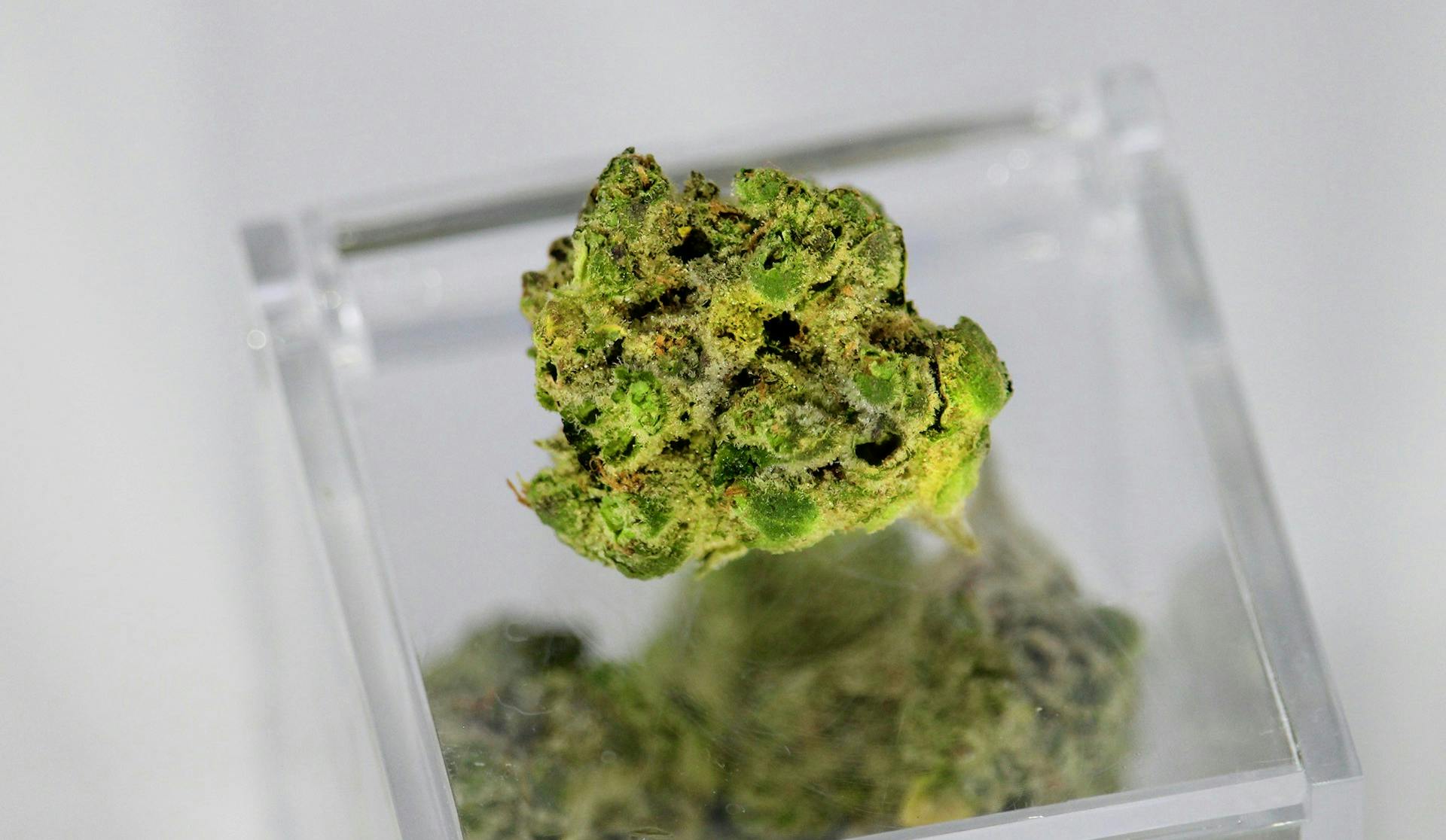
The Science of Terpenes: More Than Just Smell 🌿
Understanding cannabis terpenes transforms the deli-style flower experience from simple selection to...
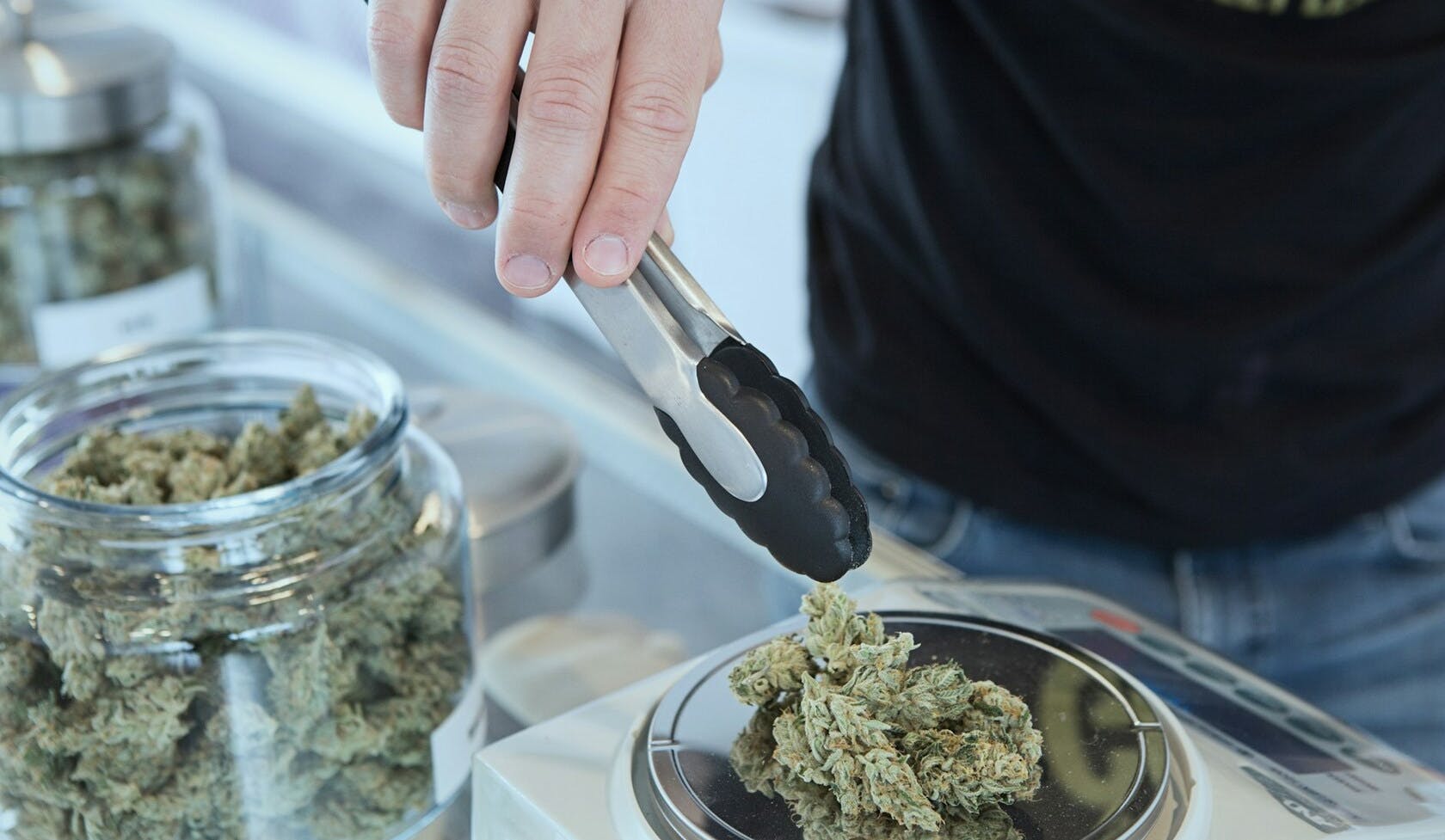
Best Dispensary in Cambridge MA: What Makes GreenSoul a Cultural Movement
In a market filled with standard cannabis retailers, one Cambridge dispensary has redefined what it ...

Boston's Cannabis Education Revolution: Complete Guide to Workshops, Resources & Community Learning 🎓🌿
The evolution of cannabis in Massachusetts has progressed far beyond simple retail. As legalization ...
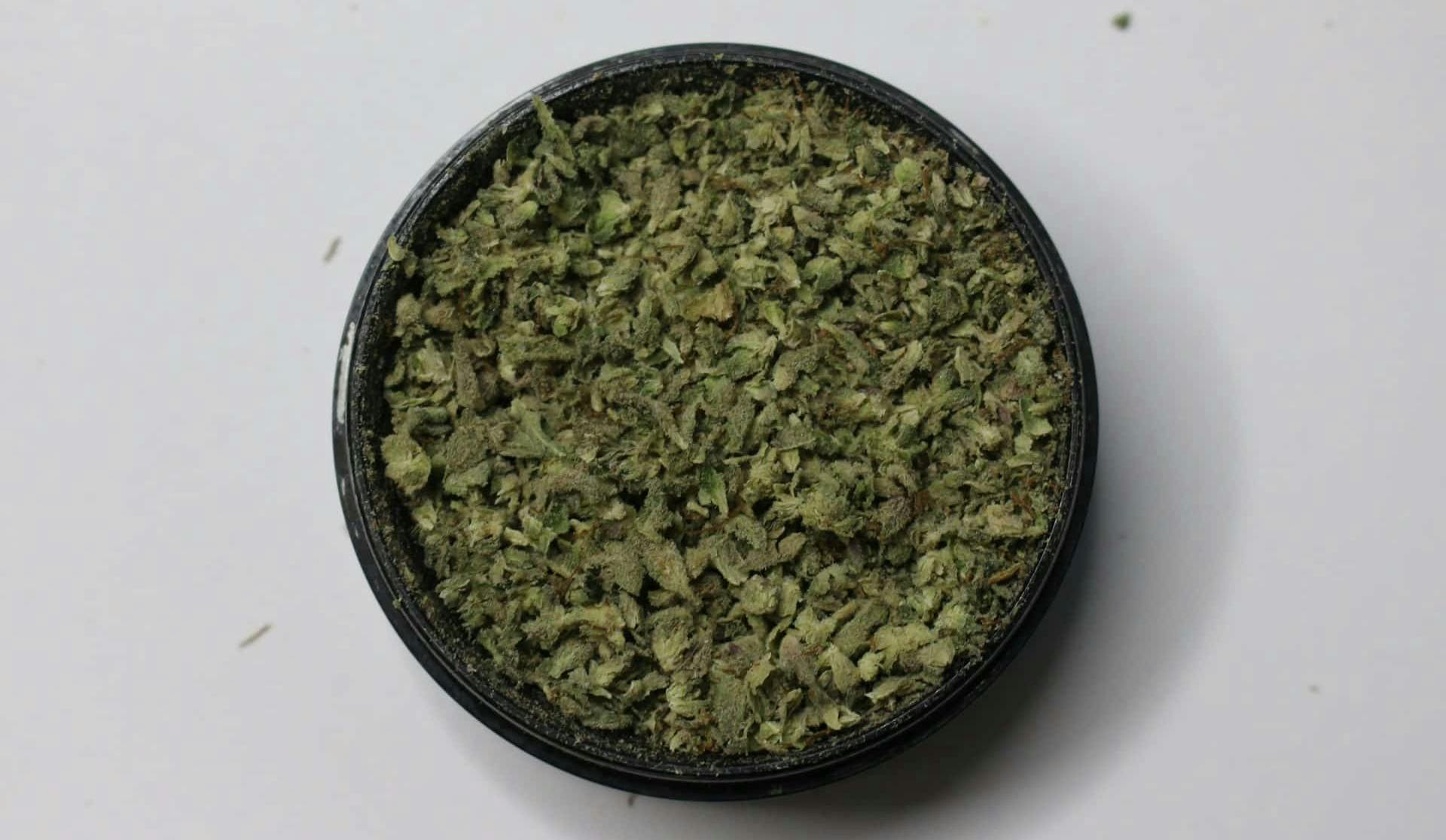
Cannabis Near Me in Boston: Ultimate 2025 Neighborhood Guide to Top Dispensaries 🗺️🌿
In a city as neighborhood-centric as Boston, finding the ideal "cannabis near me" option isn't just ...



